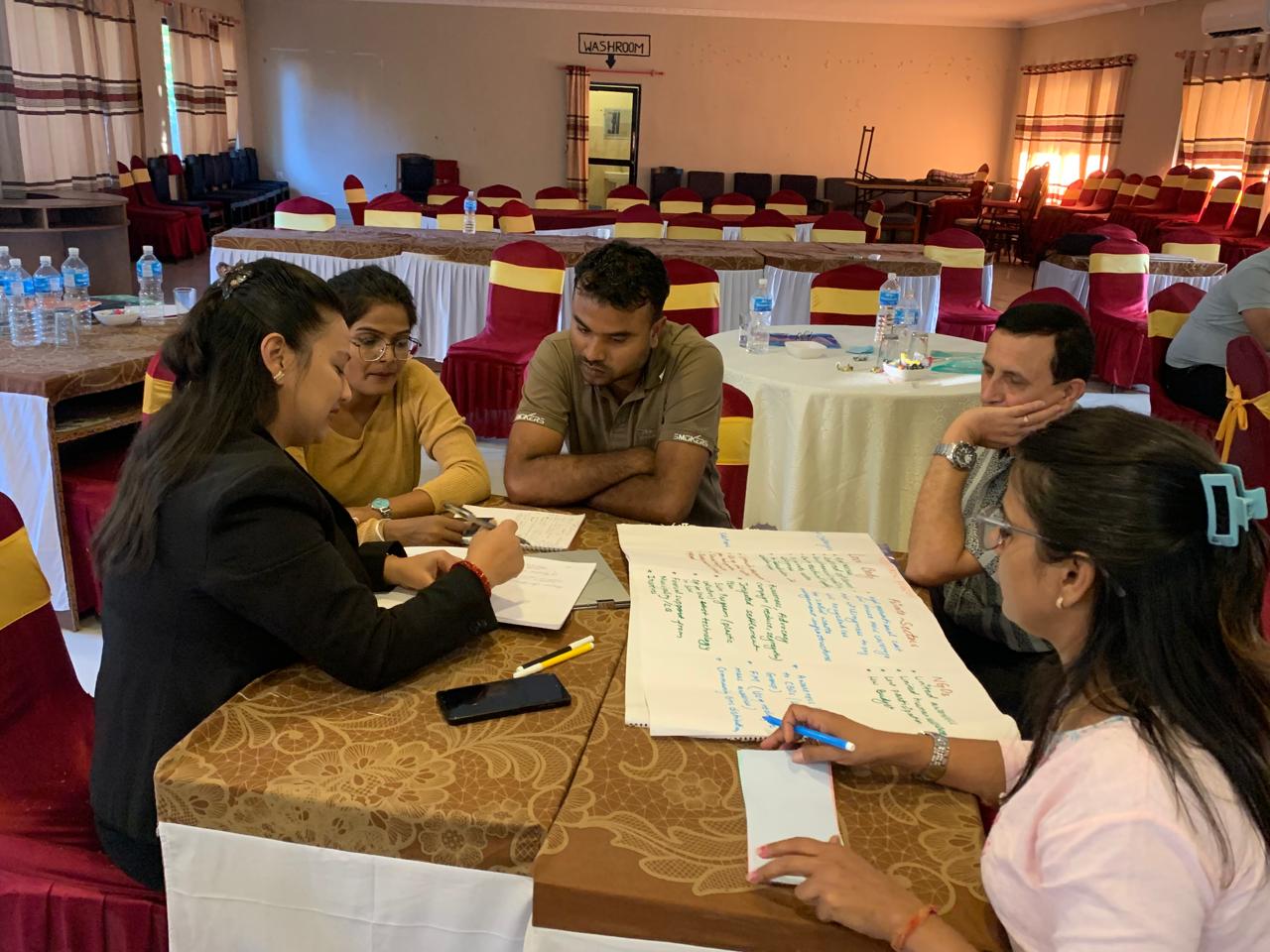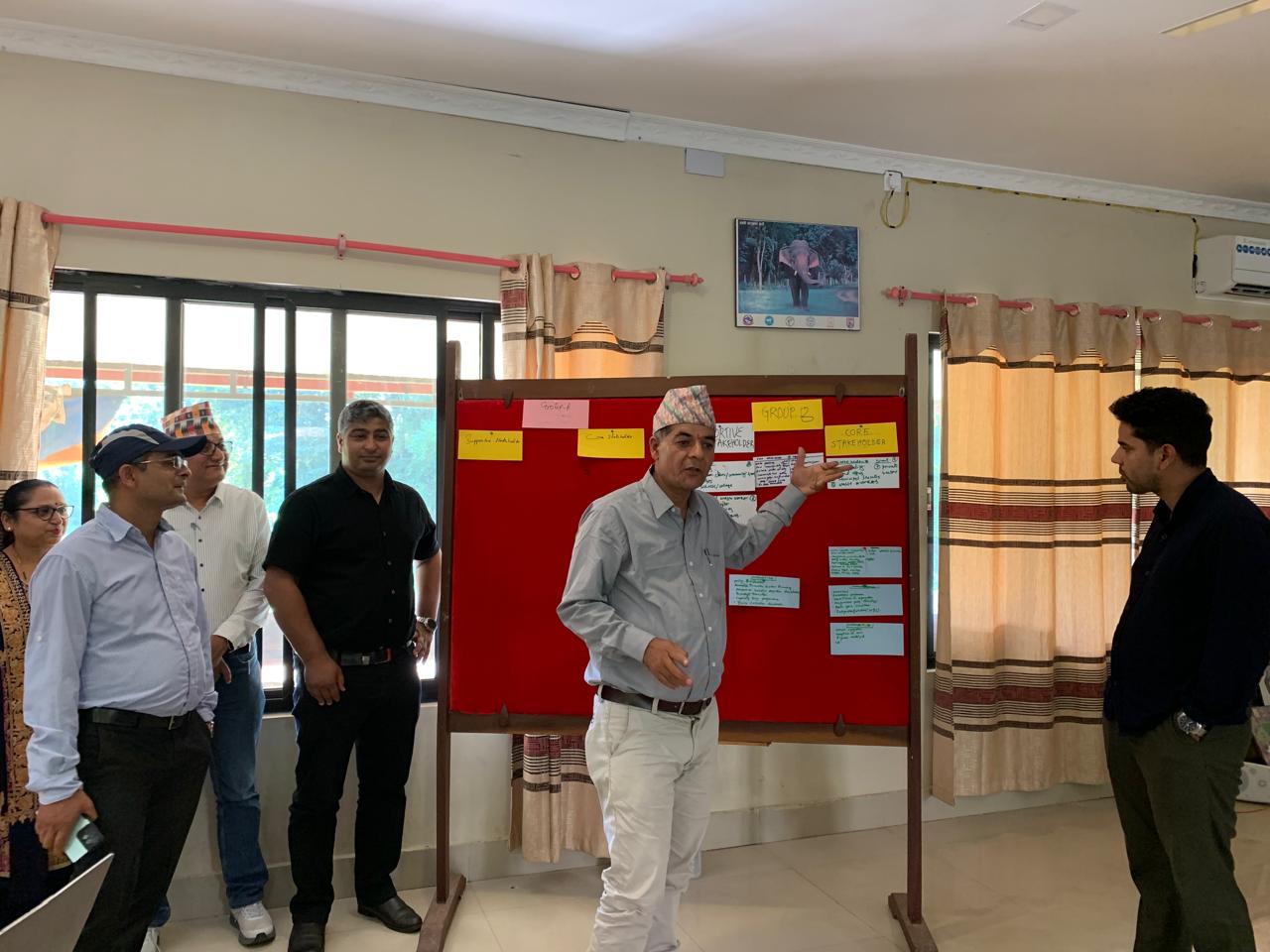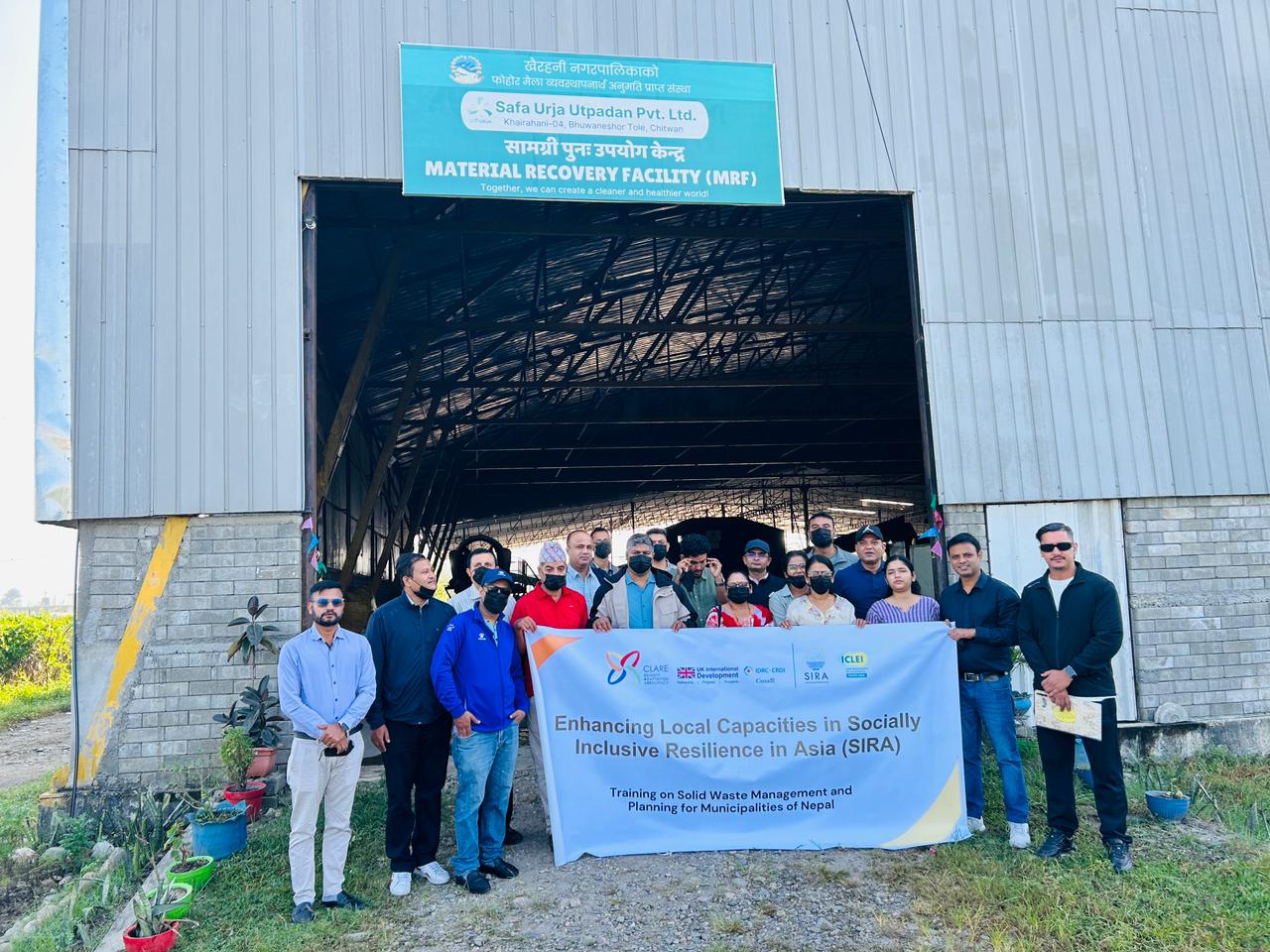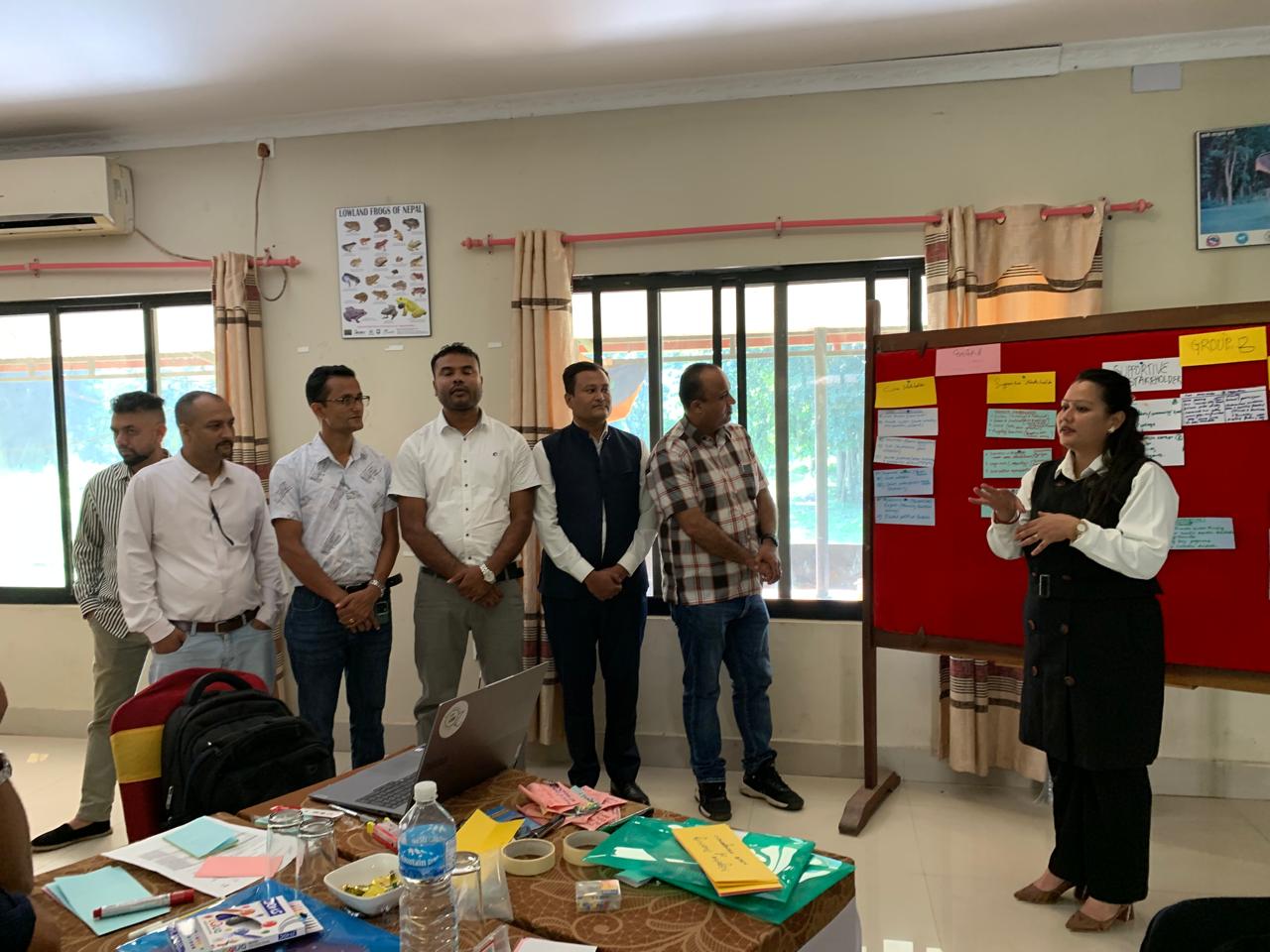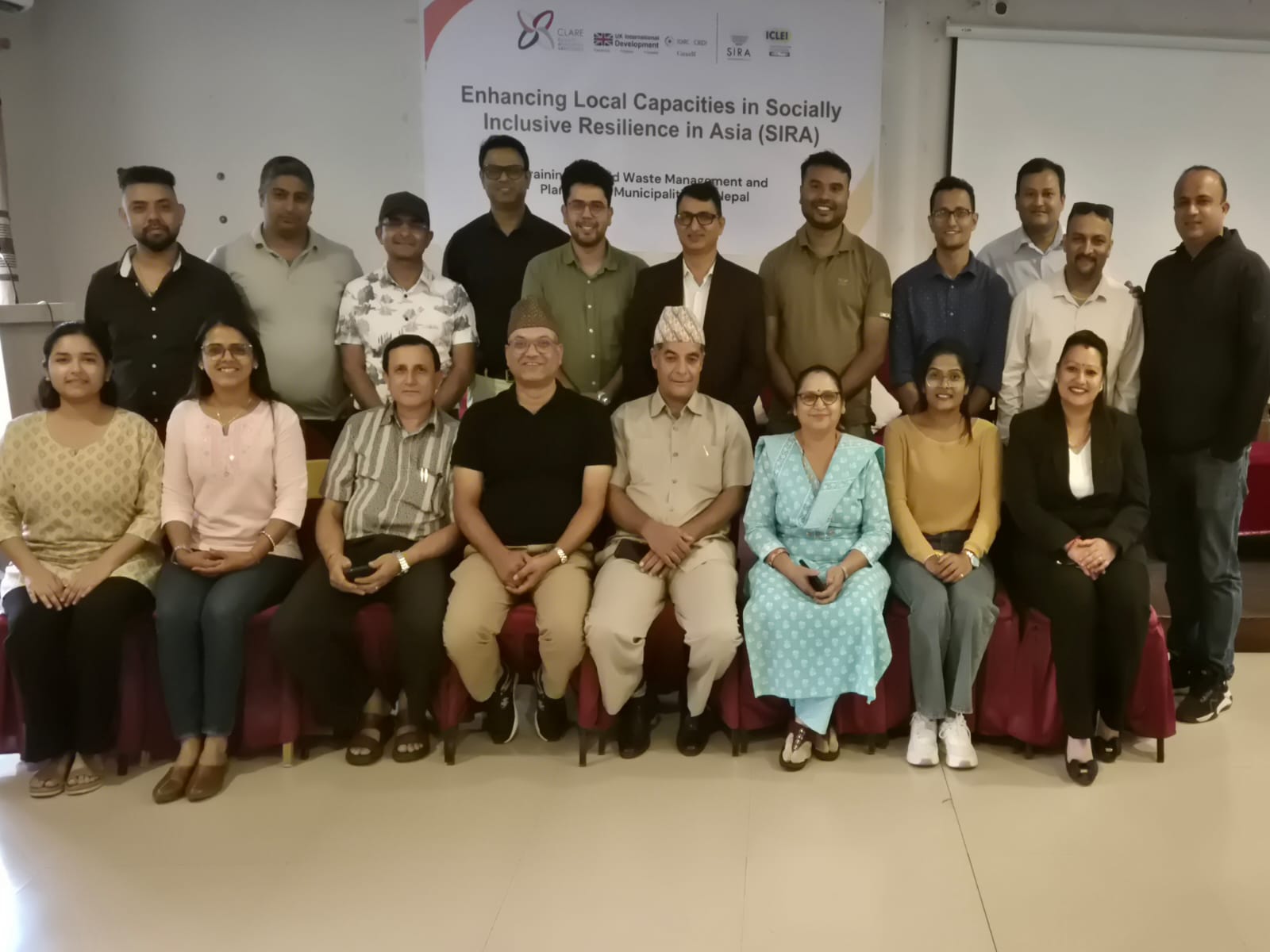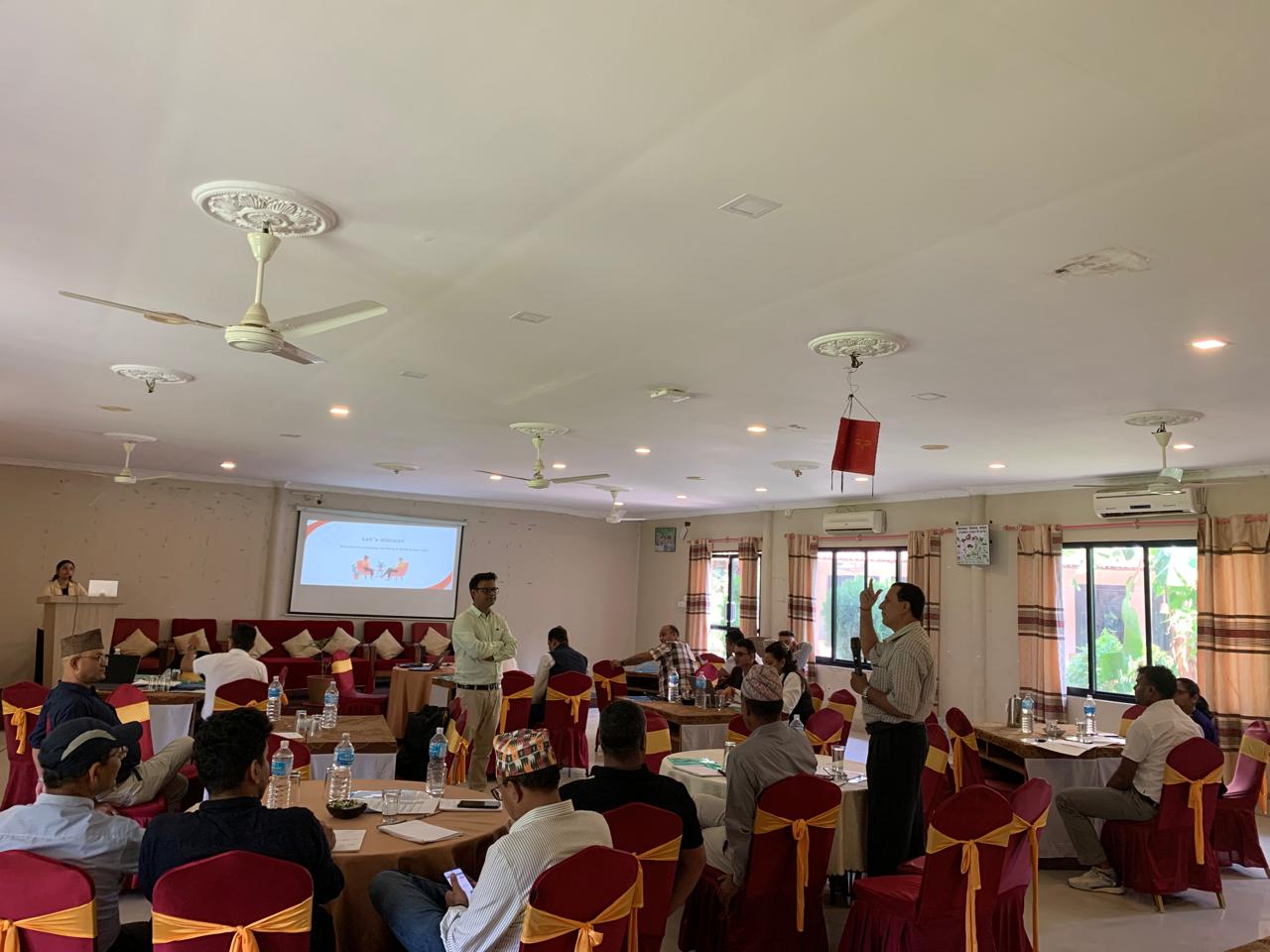Training on Solid Waste Management and Planning for Selected Cities in Nepal

ICLEI South Asia conducted an in-person Training on Solid Waste Management (SWM) and Planning from 14–16 October 2025 in Sauraha, Chitwan, Nepal, as part of the ongoing capacity-building series under the Enhancing Local Capacities in Socially Inclusive Resilience in Asia (SIRA) project, funded by UK Aid through the Foreign Commonwealth and Development Office (FCDO) and the International Development Research Centre, Canada through the Climate Adaptation and Resilience (CLARE) programme.
The training series aims to strengthen the capacity of local governments and practitioners to engage diverse stakeholders—including marginalised and vulnerable communities— in advancing inclusive and climate-resilient urban development across Nepal, Bangladesh, Indonesia, and the Philippines.
Seventeen officials from seven municipalities in Nepal, namely Dhankuta Municipality, Hariyon Municipality, Hetauda Sub-Metropolitan City, Namobuddha Municipality, Nagarjun Municipality, Vyas Municipality, and Ratnanagar Municipality, participated in the sessions, which comprised two days of training, followed by a half-day field visit.
Comprehensive and Practical Learning
The training covered key aspects of SWM, including the fundamentals, national policies, participatory planning, and technology options ranging from decentralised models to advanced processing systems. Resource persons from ICLEI South Asia and the Government of Nepal spoke about data-driven planning, transparency in procurement, and systems-based approaches for waste minimisation and resource recovery.
To complement the classroom sessions, participants visited the waste processing facility in Khairahani Municipality, operated by Safaurja Nepal. The visit provided first-hand exposure to various waste processing technologies, including material recovery facilities, bio-composting, eco-block preparation, and plastic recycling, allowing the participants to observe how such solutions could be adapted within their municipalities.
Feedback and Next Steps
The participants shared that the sessions were highly relevant to their daily work and highlighted the value of practical exercises and peer exchange. They also expressed appreciation for the venue arrangements and logistical support provided for the training.
Building on the success of this initiative, ICLEI South Asia will next organise a SWM Training for eight municipalities from western Nepal, followed by a series of webinars. These webinars will: encourage municipalities to integrate key learnings into their ongoing and upcoming SWM plans; support the development or updating of municipal-level SWM action plans using participatory tools; and provide a platform for cities to share progress, best practices, and lessons learned.
Through such continued engagement, the SIRA project continues to strengthen local governments in South Asia for inclusive, sustainable, and climate-resilient urban development.
